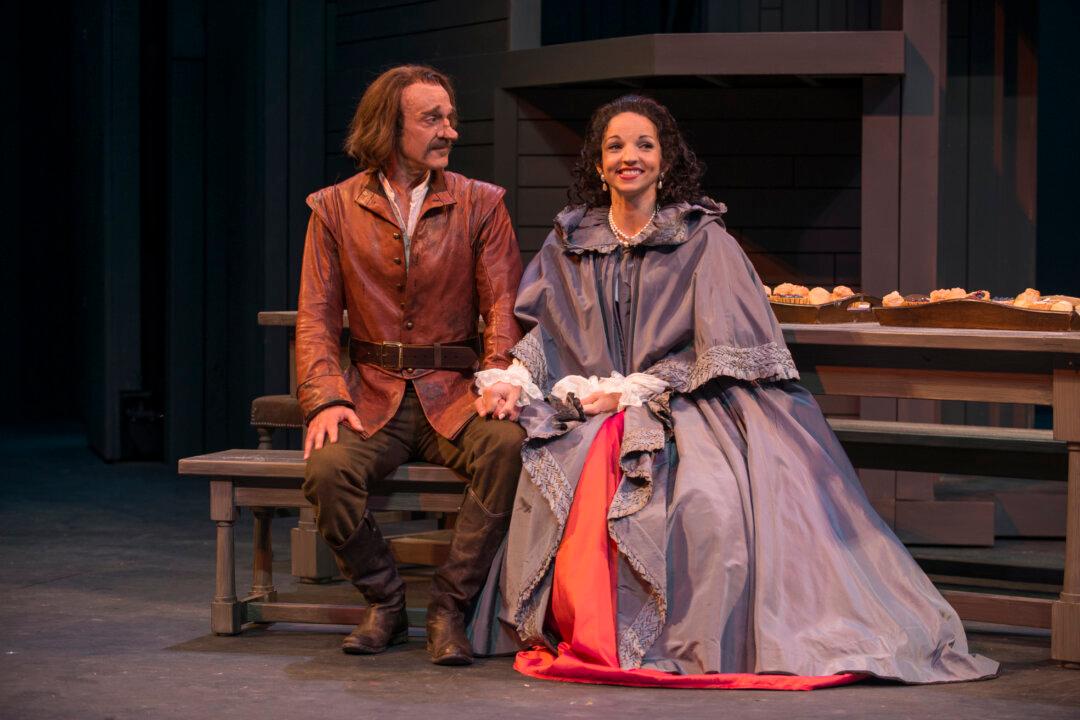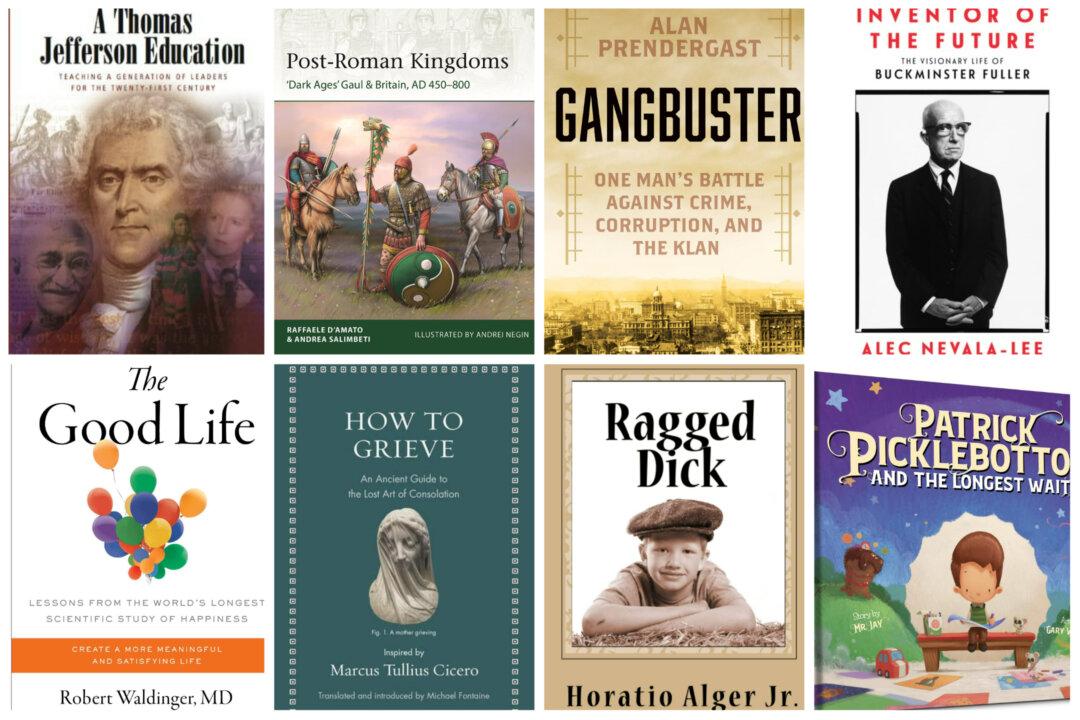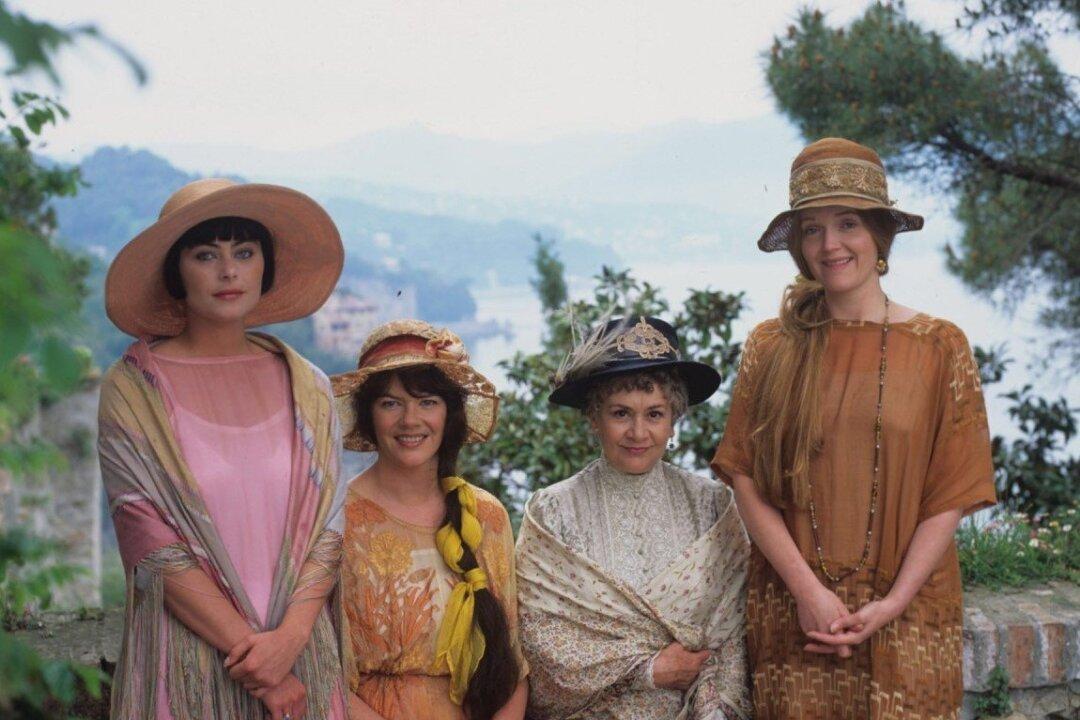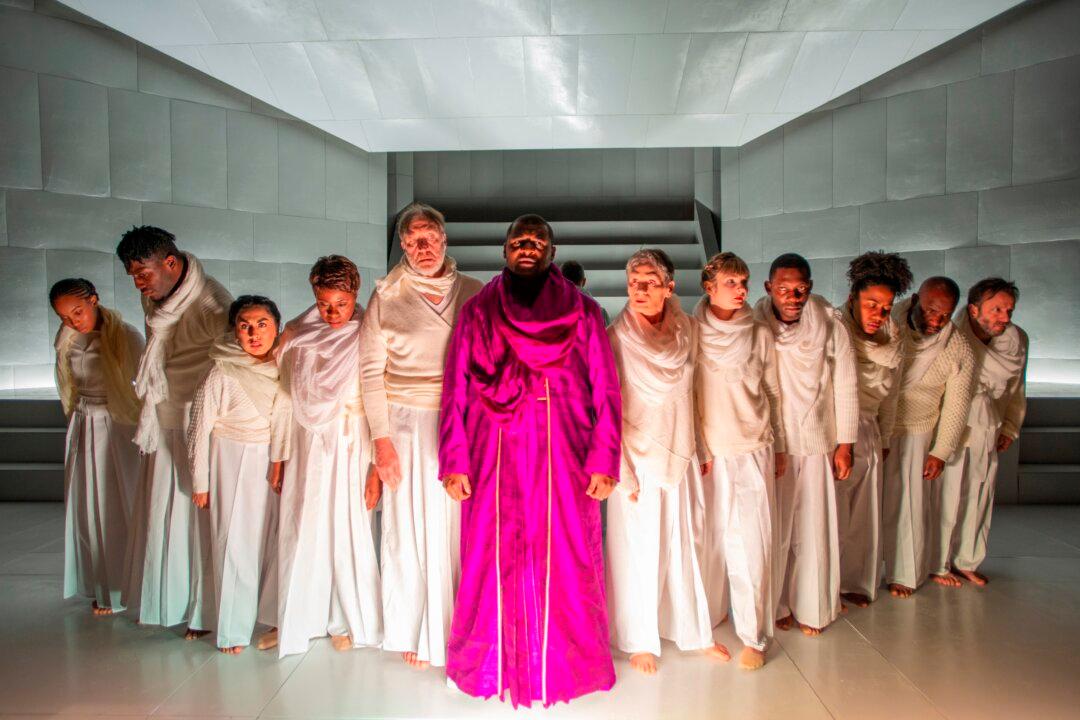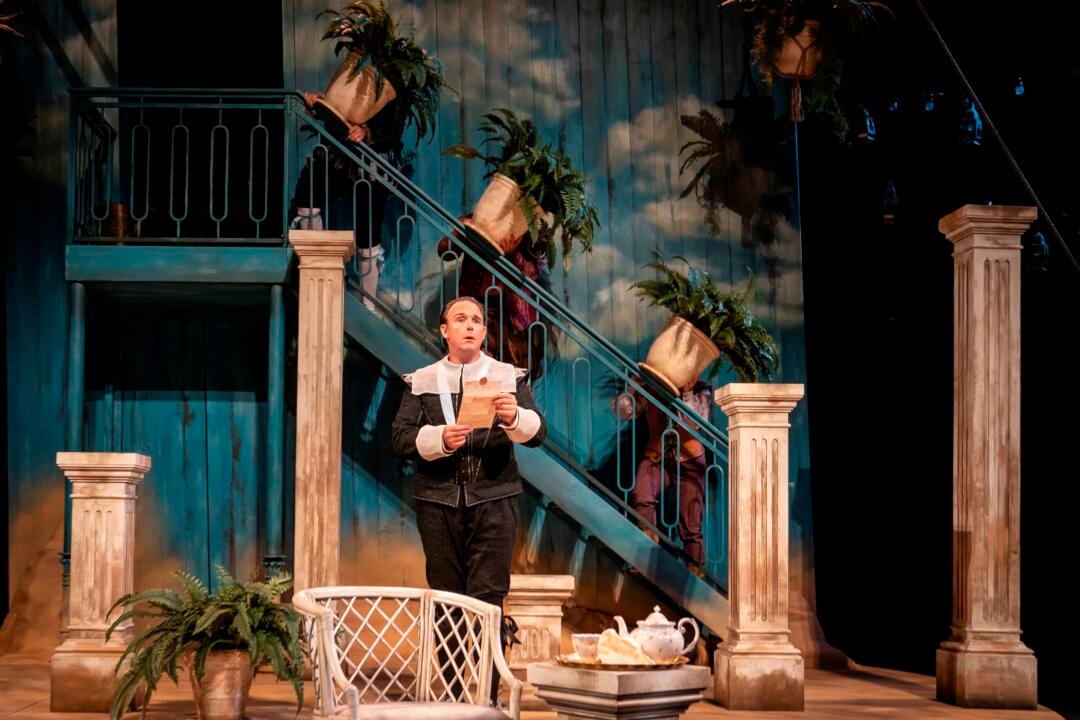SPRING GREEN, Wisc.—“Cyrano de Bergerac” has often been reduced to a story of unrequited love, perhaps the most famous of its kind in all of dramatic literature. But the character the play is named after is so much more. Director James DeVita, who drew from four translations of the play to write his adaptation, emphasizes the character’s admirable bravery, his wit, his poetic gestures, his flights of rapid-fire fancy, and his irrefutable honor, upheld with tenacity.
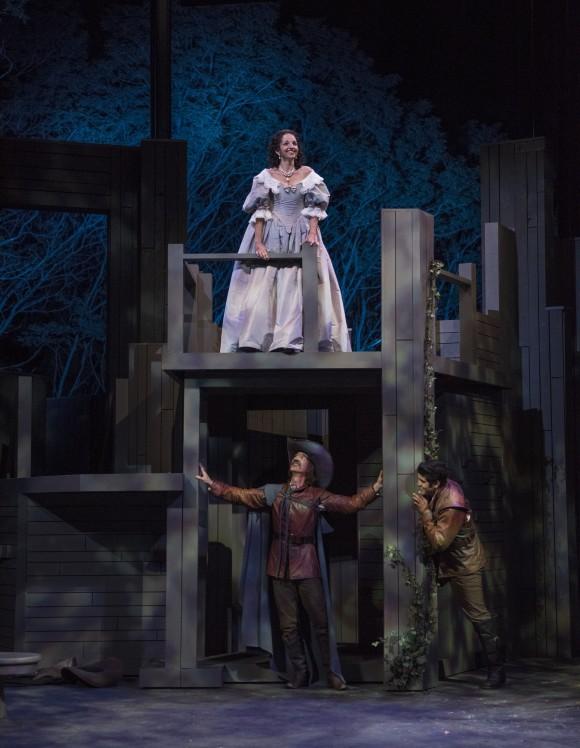
In the most famous scene of the play, (L–R) Roxane (Laura Rook) is wooed by Cyrano (James Ridge) for Christian (Danny Martinez) who lacks the ability to speak beautifully. Michael Brosilow

